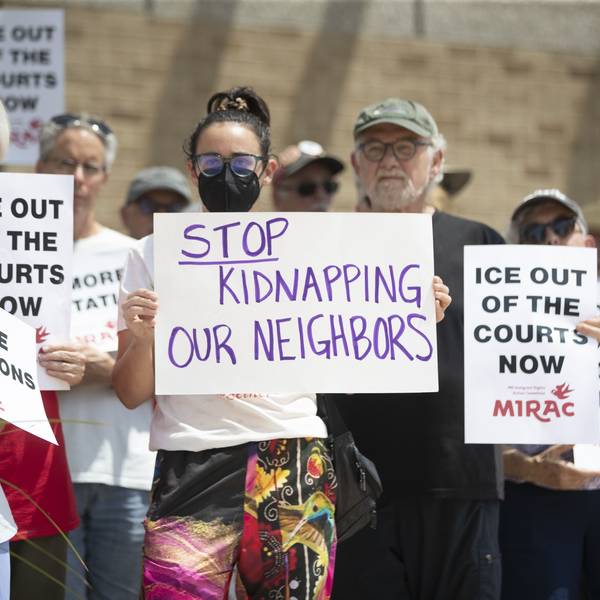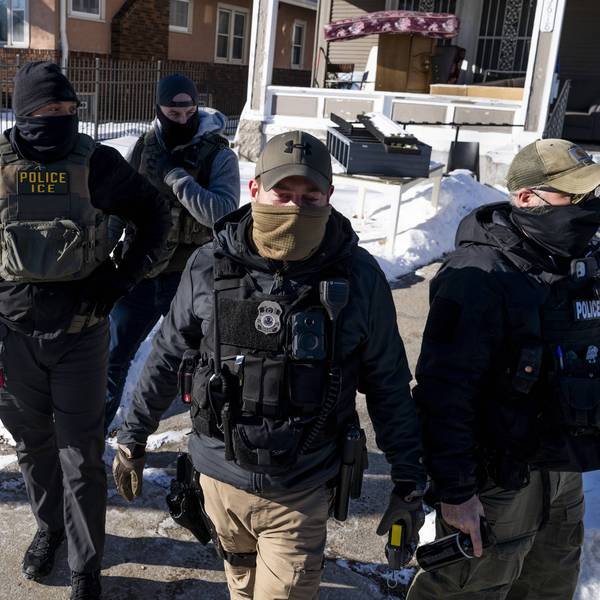The civil rights divisions of the U.S. Department of Justice (DOJ) on Monday released a letter calling on states to crack down on unconstitutional policies that trap low-income people in a cycle of debt and jail.
"The consequences of the criminalization of poverty are not only harmful--they are far-reaching," Attorney General Loretta Lynch said Monday in a statement. "They not only affect an individual's ability to support their family, but also contribute to an erosion of our faith in government."
The "Dear Colleague" letter (pdf), written by the Civil Rights Division top attorney Vanita Gupta and the Office for Access to Justice director Lisa Foster, calls on courts to stop using fines and fees as a way to raise revenues and jailing those who cannot pay.
It lists seven constitutional principles to help "judicial actors protect individuals' rights and avoid unnecessary harm," including considering alternatives to incarceration for indigent defendants and not hinging access to judicial hearings on prepayment of fines and fees.
Recent investigations and lawsuits have exposed the frequency with which jurisdictions throughout the country have turned their policing and court systems into these kinds of moneymaking schemes--charging exorbitant fees for misdemeanors and civil infractions, using arrest warrants as a collection tactic, and requiring defendants to pay fines before allowing them access to the courts.
"[T]he harm caused by unlawful practices in these jurisdictions can be profound," the letter states. "Individuals can confront escalating debt; face repeated, unnecessary incarceration for nonpayment despite posing no danger to the community; lose their jobs; and become trapped in cycles of poverty that can be nearly impossible to escape."
"Furthermore, to the extent that these practices are geared not toward addressing public safety, but rather toward raising revenue, they can cast doubt on the impartiality of the tribunal and erode trust between local governments and their constituents," it continues.
Gupta and Foster cite an example in which "a motorist who is arrested for driving with a suspended license may be told that the penalty for the citation is $300 and that a court date may be scheduled only upon the completion of a $300 payment."
Those requirements "can have the effect of denying access to justice to the poor," they write.
The letter was issued following a two-day convening hosted by the DOJ and the White House that brought together judges, court administrators, attorneys, advocates, and people who have been impacted by those unconstitutional policies for two working sessions entitled "Poverty and the Criminal Justice System: The Effect and Fairness of Fees and Fines" and "A Cycle of Incarceration: Prison, Debt, and Bail Practices."
Following the meetings, the DOJ's Bureau of Justice Assistance pledged to provide resources for the newly assembled National Task Force on Fines, Fees, and Bail Practices, a separate cover letter (pdf) announced on Monday. The task force "will work to draft model statutes, court rules, and policies and procedures, and will serve as a clearinghouse for best practices and resources."
The department is also administering $2.5 million in competitive grants to state judges and administrators to reform their court systems to ensure that defendants' civil rights are not violated.
While the letter to the courts is not legally binding, it makes clear the government's position on the issue of justice reform, which has become a more central focus of President Barack Obama's final term in office.
In February, the Civil Rights Division filed a particularly high-profile lawsuit against Ferguson, Missouri in part for its continued use of law enforcement as a for-profit venture, but other groups and advocates have mounted similar challenges throughout the country.



